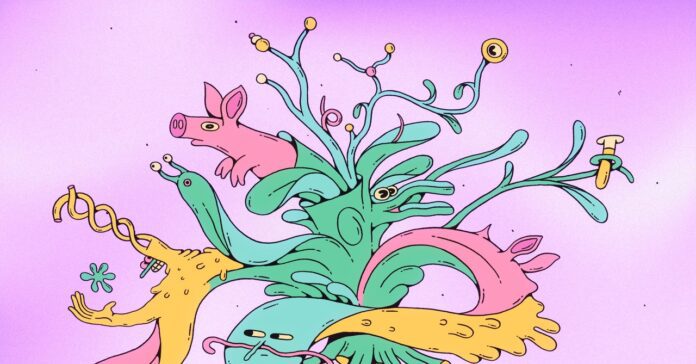For Gastón Paladini, beef is a circle of relatives affair. In 1923, his great-grandfather Don Juan Paladini moved from Italy to Santa Fe, Argentina, the place he began placing a South American twist on vintage Italian sausage recipes. In the end, Don Juan’s corporate become one in every of Argentina’s biggest meat manufacturers. It nonetheless bears the circle of relatives title: Paladini.
However in 2020, Gastón began having the type of heretical ideas that will have made his ancestors blush. What if it’s essential seize the essence of beef—that meaty, umami sweetness—and put it inside a plant? Paladini’s creativeness ran wild with ideas of a soybean that dripped blood: a chimera that packed the entire taste of pig meat right into a seedling.
As of late, Paladini is the CEO of Moolec Science, a molecular farming company that makes use of vegetation to develop animal proteins. The theory is to show vegetation into tiny, field-based factories that may produce high-value proteins and different molecules that may well be used to complement present merchandise, or supply a meaty heft to plant-based meals. “That is the actual factor. Those are actual meat-protein molecules,” says Paladini.
In June 2023, Moolec published that it had inserted genes from pigs into soy vegetation with a view to make soybeans that expressed porcine proteins. The experiments had been performed on the corporate’s greenhouses in Wisconsin. In one of the soybeans, over 1 / 4 of the soluble proteins had been known as pig. It’s now not relatively the bleeding soybean that he first imagined, however Palidini used to be nonetheless inspired with simply how a lot pig protein his soybeans perceived to produce. The beans have a pinky hue and a meaty style, he says, although the corporate continues to be waiting for a complete research in their dietary qualities. Subsequent yr, Paladini hopes to take the soybeans to out of doors area trials in Wisconsin.
Plant-based meat corporations may well be in particular occupied with animal proteins grown this fashion. In the United States, gross sales of plant-based merchandise are flat-lining amid indicators that buyers are underwhelmed through those animal-free choices. As self assurance wavers, extra startups are hoping to create the killer element that may assist plant-based sausages and burgers rival their fleshy opposite numbers. Australian startup Nourish makes use of genetically-engineered yeast to supply animal-like fat, whilst UK-based Hoxton Farms grows fats from exact animal cells in bioreactors.
“I for my part imagine that the plant-based business has bogged down since the value, style, and taste are just right—however now not just right sufficient,” says Paladini. “The plant-based corporations nonetheless wish to fortify taste and texture and get down the price.”





 #shorts #shortsfeed #nature #youtubeshorts #iciness
#shorts #shortsfeed #nature #youtubeshorts #iciness